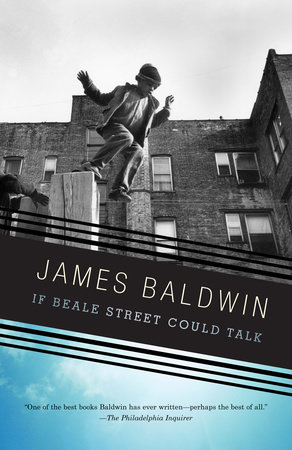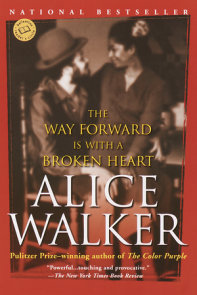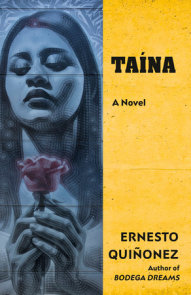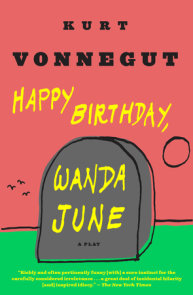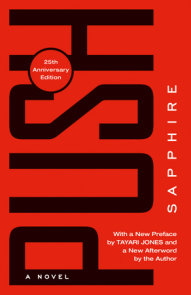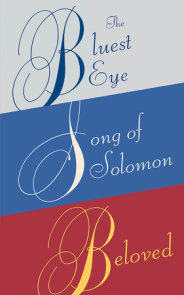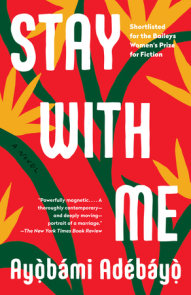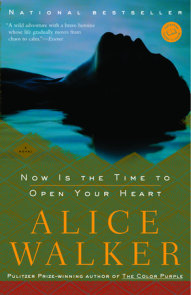READERS GUIDE
Nineteen-year-old Tish has a secret. She is pregnant with her fiancé Fonny’s child. But to tell him, she must travel to the heart of New York City and into the depths of the Tombs, where Fonny is imprisoned, awaiting trial for a crime he did not commit.So begins James Baldwin’s 1974 novel If Beale Street Could Talk, a harrowing tale of a young woman’s fight for justice. Forced to live with the consequences of a horrible crime, Tish’s and Fonny’s families will race against time to free the man they love for the arrival of his child. Equally a story of young love, of deep despair and small triumphs, and a searing indictment of a criminal justice system that will stop at nothing to tear this family apart, If Beale Street Could Talk reveals the dignifying power of love even in the face of cruelty, injustice, and suffering.
The following questions are designed to spark thoughtful reflection and meaningful discussion for your reading of James Baldwin’s If Beale Street Could Talk. We hope they enrich your experience of this poignant novel by one of America’s most celebrated authors.
Questions and Topics for Discussion
1. If Beale Street Could Talk is set in the U.S. during the early 1970s and was written in the context of the war on drugs, the rise of stop-and-frisk and no-knock warrants, and the beginning of mass incarceration. How are the novel’s major plotlines and themes influenced by this political climate? How do the dialogue, fashion, and music evoke the atmosphere of the time and add to the realism of the novel? Is this a story you can imagine being retold in today’s America? Why or why not?
2. The novel begins on the day that Tish tells her family she is pregnant with Fonny’s child. How did Fonny, the Rivers family, and the Hunts react to the news? Was it what you expected? Share your own experience of making a special announcement to your friends and family.
3. How did the friendship between Tish and Fonny first begin? What early childhood experiences strengthened their bond, and what events led to their relationship growing into romantic love? How does Fonny’s imprisonment affect their relationship, and what do they do to keep their partnership strong despite these conditions?
4. If Beale Street Could Talk takes place in New York City. How does Tish’s view of the city expand and change over the course of the novel and her love story with Fonny? Are there any events in your own life that have complicated or forced you to reexamine the places you call home?
5. Describe Fonny’s pad. If you were to have your own creative space, what would be in it? What do Fonny’s few belongings reveal about his character and the things he holds dear? How does he cope with the loss of these comforts in prison?
6. Who convinced Hayward to take Fonny’s case, and why is the family reluctant to trust him? Do you think their distrust is warranted? What were Hayward’s initial reservations about defending Fonny, and how does his attitude toward the case shift as the novel continues? Ultimately, what effect does taking the case have on him, and how does he try to fight for justice for Fonny?
7. In Greenwich Village, Fonny reunites with his childhood friend Daniel. Where has Daniel been for the past two years, and what does his narrative reveal about the horrors of the carceral system?
8. The fate of Fonny and his family is inextricably linked to Mrs. Rogers, the victim of the horrific rape that he has been accused of. Who is Mrs. Rogers, and how is she viewed by the family? Do they believe her? Why do they think she accused Fonny? How does the crime against Mrs. Rogers become a crime committed against an innocent family, and what forces make it so? In the end, does Mrs. Rogers, or anyone in the novel, ever get justice, peace, or healing?
9. During his meeting with Tish and Sharon, Hayward explains, “The truth of the case doesn’t matter. What matters is—who wins” (page 93). What is the state’s case against Fonny, and what are the inconsistencies in their timeline? What circumstances led to Fonny being charged for a crime he didn’t commit, and how was the state able to keep him imprisoned without a trial? In the end, does anyone know the truth about who attacked Mrs. Rogers?
10. Why is Sharon sent to Puerto Rico, and who does she encounter during her trip? Did you expect her to return to New York successfully? What do you think she means when she says, “We on the same garbage dump. For the same reason” (page 185)?
11. How did you react to Tish and Fonny’s first altercation with Officer Bell? What do you think would have happened if the Italian store owner had not intervened, and what does this reveal about the precarious nature of Black life at this time in America? What events are set in motion for the couple after this encounter?
12. Just when it feels like there is no hope left for the characters, they are buoyed by sincere acts of kindness and generosity from members of their community. Who are these characters, and how do they show up for Tish, Fonny, and their family when all forces seem to be against them?
13. As the chances of getting justice for Fonny grow smaller, what schemes do his family members contemplate to set him free, and what are they willing to risk or sacrifice for his return? Were you surprised that the Hunt women chose to cooperate with the D.A. instead?
14. Reflect on Fonny’s upbringing. Why does he call the Rivers family “the only family I’ve ever had” (page 84)? Do you think it’s true that Frank wasn’t a real father to him, as Frank asserts on page 126?
15. What emotions surfaced for you during the novel’s closing sequence, and why do you think Baldwin chose to end the story in this way? What do you think the future holds for the characters after the novel’s ending?
16. James Baldwin explores topics such as race, religion, poverty, and injustice in his fiction, and the novel touches on them all with great sensitivity and depth. What is one passage that stuck with you in particular and why? What insights does it provide?
Suggested Reading
Recommended ReadingsThe Fortune Men by Nadifa Mohamed
The Women of Brewster Place by Gloria Naylor
The Street by Ann Petry
The Beautiful Struggle by Ta-Nehisi Coates
The House on Mango Street by Sandra Cisneros
The Bluest Eye by Toni Morrison
Go Tell It on the Mountain by James Baldwin
The Fire Next Time by James Baldwin
Giovanni’s Room by James Baldwin
Going to Meet the Man by James Baldwin






